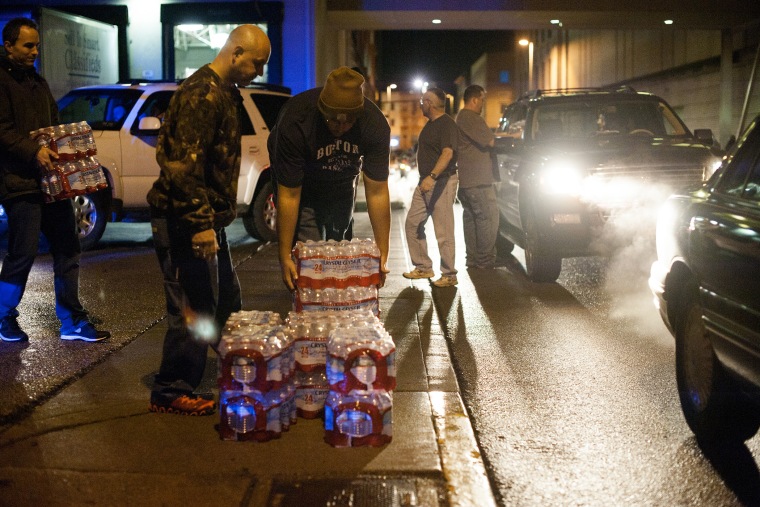Witnesses from West Virginia American Water and the Bureau for Public Health maintained during a Congressional hearing Monday that the tap water in West Virginia meets safety standards after 10,000 gallons of the chemical MCHM leaked into the Elk River and public water supply one month ago. But they distanced themselves from saying the water supply is unequivocally safe.
"As a water company, we do not set the safety standards, but we are in compliance with the standards set by all the health-based agencies," Jeff McIntyre, President of West Virginia American Water, said in a field hearing by the House Transportation and Infrastructure Committee when he was asked by Rep. Shelley Moore Capito if the water is safe to drink.
"I believe the water, based on the standards that we have, is usable for every purpose and that includes drinking, bathing, and cooking," said Dr. Letiticia E. Tierney, commissioner of the state Bureau of Public Health. But she noted in her testimony, "Everybody has a different definition of safe."
Skeptical residents sounded off on public officials at the end of Monday’s hearing.
"We simply do not have that much confidence in your water system to begin with," said 71 year resident Sue Davis. "So it's going to be a long time before you restore faith in it again."
Two schools were dismissed Wednesday after students and faculty reported the black licorice smell of MCHM and complained of headaches and burning eyes and noses. The next day, 14 Kanawha County schools that were evaluated allowed to re-open complained to health officials that the water supply still had the smell associated with MCHM.
Double the original 5,000-gallon estimate of chemicals has been found in the water, and new chemicals have been suspected since the spill first occurred on Jan. 9, including PPH and formaldehyde.
The area water supply company began lifting the ban on Jan. 13 and gave the “all-clear” five days later. Two days after that, Gov. Earl Ray Tomblin told residents “It’s your decision” cautioning that he was “not going to say absolutely, 100% that everything is safe.”
The Chairman of the U.S. Chemical Safety Board estimated that his organization’s investigation could take up to a year.
“These chemicals are created in the industry to be reactive and to do chemical work,” Rafael Moure-Eraso told state legislators on Jan. 24. “Even in small quantities, they affect human beings, they have the potential to affect human beings and we should be worried about it. Definitely, they should not be in drinking water period, at any level," he said in January. He explained in Monday's testimony that it is difficult to estimate the effects of the chemicals because so little research has been done.
Freedom Industries, the company that owns the facility where the leak occurred, did not send a representative to Monday’s hearing. The committee had extended an invitation to its president, Gary Southern, to testify.
"Freedom Industries' decision not to testify today compounds its gross misconduct, and is an absolute affront to every person impacted by its spill," Capito said Monday.
The company filed for bankruptcy slightly more than a week after the spill occurred.
